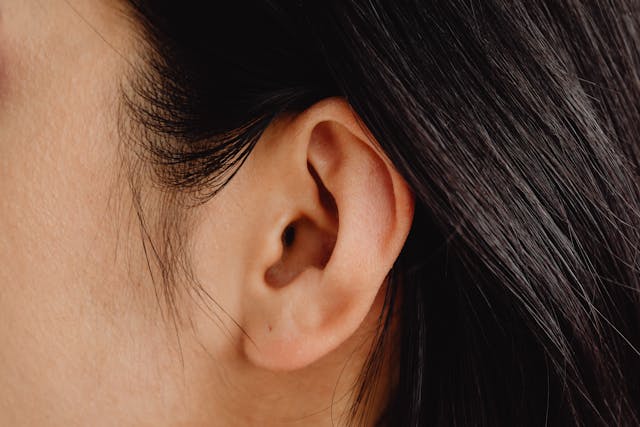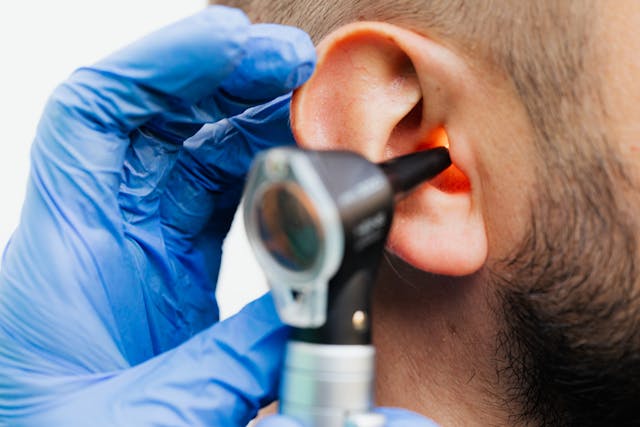Whether from the body itself or an outside source, it’s normal for individuals to experience hearing loss, especially as they grow older. One study reveals about a third of individuals have hearing loss once they reach 65, and the number blossoms to half when people reach 75. If you can’t hear, hearing aids might be the next step. What do you do?
It might seem intimidating to go through the process of qualifying for hearing aids, but it’s relatively simple once you know what you’re doing. Keep reading to learn more about indicators you might need hearing aids, steps to make it through the process, and other helpful details.

What Are Indicators You Might Need Hearing Aids?
Besides not being able to hear, there are other indicators to watch out for that indicate you might need hearing aids. It’s helpful to talk to friends or family members to determine if you need to bring hearing aids into your life.
Here are some indicators that hearing aids could be on your horizon:
- Volume: You need to keep the volume on your television, radio, and other devices much higher than others.
- Mumbling: When you listen to people talk, it always seems like they are mumbling or talking under their breath.
- Tricky phone/Zoom calls: It’s difficult to understand people on the phone or Zoom when you can’t see their lips in motion.
- Issues with high-pitched sounds: You have trouble hearing others, especially when their voices are at a much higher pitch.
- Repetition: You have to ask people to repeat their sentences again and again.
- Gesturing/speaking loudly: Individuals often speak louder or gesture violently when they’re speaking to you.
These can go along with not being able to hear generally. One of the best ways to know if you need hearing aids is to talk to those you love. It’s much easier to have a perspective from those who are on the outside, rather than yourself.
If you aren’t sure where to start, take a look at our checklist for aging parents which can give you a summary of all the health-related items you need to keep an eye on as your parents age!
Steps to Take If You Might Need Hearing Aids
Maybe you hear some indicators from friends and family and know you’re struggling with hearing, it might be time to get hearing aids. Of course, saying these things is easier said than done. Luckily, it’s a relatively simple process to access these all-effective medical devices.
If you’re nervous about completing these tasks, contact a friend or family member to assist you through these steps. Hearing aids can be a life-changing gift if you are genuinely struggling with hearing loss.
Check Your Insurance
One of the first things you should do is check your insurance. Many insurance plans cover the cost of hearing aids or offer discounts you can use to get a hearing exam or hearing aids. Though it might be tempting to skip this step, it could save you significant money in the long run.
These are the typical offerings from insurance companies for hearing aids:
- Hearing aid allowance: This coverage permits a fixed amount to help cover the cost of hearing aids.
- Hearing aid benefit: A benefit is the fixed copay amount you will pay for your hearing aids and medical assistance.
- Hearing aid discounts: Some hearing aids provide discounts for hearing aids or the cost of health procedures along the way.
Use every opportunity to save money. Once you know what your health insurance does or does not cover, it’s time to move forward in taking the next steps. Speak with your insurance first if you can get free hearing aids to ensure they are shipped to your home.
Struggling to make ends meet? There are many social programs which can help. Check out our list of resources for caring for aging parents.

See An Audiologist or Physician
Once you know what your insurance covers, head to an audiologist or physician to determine the next best steps. A professional will examine your ears and perform proper tests to determine the scope of your hearing loss. This examination will also determine the ideal way to assist with your hearing loss.
There are three possible causes of your hearing loss:
- Sensorineural hearing loss: This type of hearing loss comes from physical obstructions in the ear, such as an infection or a busted ear drum.
- Conductive hearing loss: This version typically comes from aging, disease, intense noise, and more.
- Mixed hearing loss: This hearing loss comes from a combination of the above two factors.
A doctor’s visit will determine the exact cause of your issue. A physician will also be able to see if you aren’t suffering from hearing loss. They are a vital step in the process.
Pick Your Hearing Aids
Finally, once you know hearing aids are the right choice, it’s time to pick the best aids for your ears. These will be determined based on the intensity of your hearing loss, physical factors, age and lifestyle, version of hearing loss, and preferences for your technology.
There are many different types of hearing aids, from traditional versions to options that connect to your phone. Friends and family can help you make the right choice.
What If You Don’t Need Aids But Can’t Hear?
Sometimes, you might go to the doctor and find out hearing aids aren’t necessary. Unfortunately, this doesn’t mean it’s any easier to hear. If you don’t need aids but are still struggling to hear, what are some techniques you can try to improve or preserve your ears?
Here are some of the most effective ways to make your hearing better:
- Keep your speakers and other sounds at a reasonable level
- Make an effort to reduce noise in your area
- Wear ear protection devices when necessary
- Have hearing loss checks regularly
The main goal is to protect your ears as much as possible. Invest in a quality pair of earmuffs, headphones, or earplugs, and wear them whenever you need to go somewhere loud. A doctor can also provide helpful information on how to help your ears heal in practical ways. If your situation doesn’t improve after a period of time, it never hurts to go back to a doctor to determine if hearing aids are a possibility in the future.
You May Also Enjoy: The 8 Best Adaptive Technology Gadgets


















